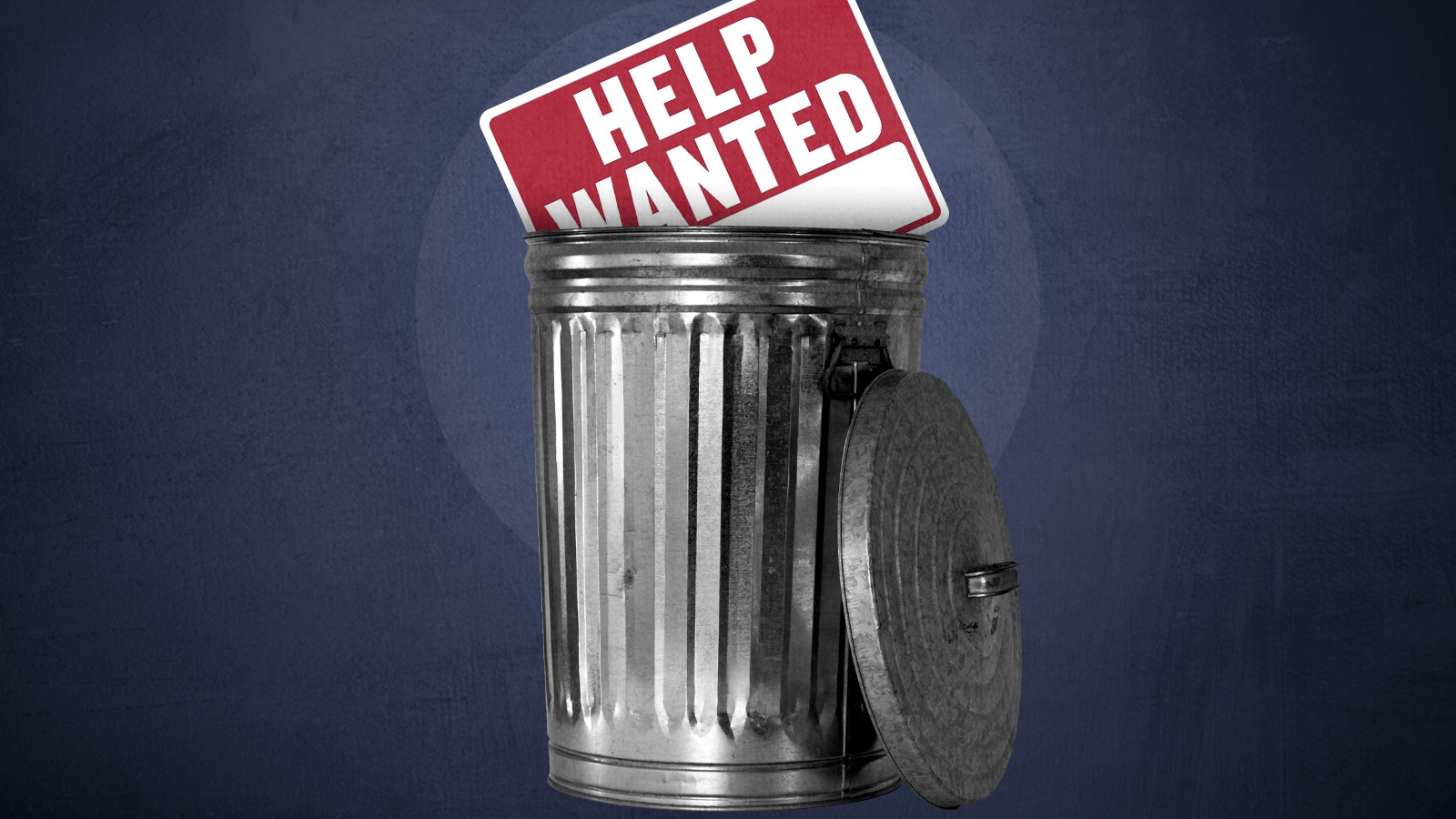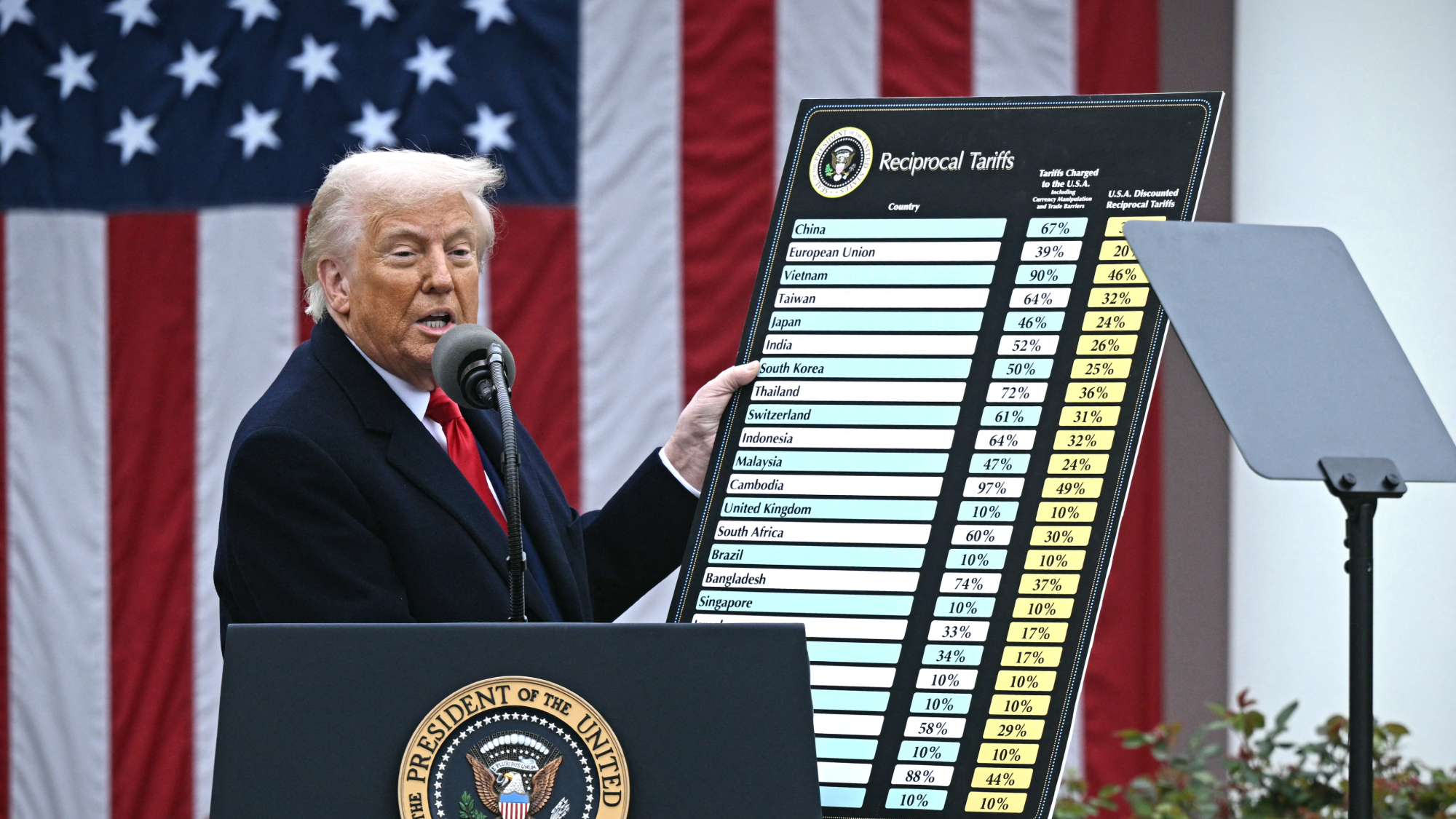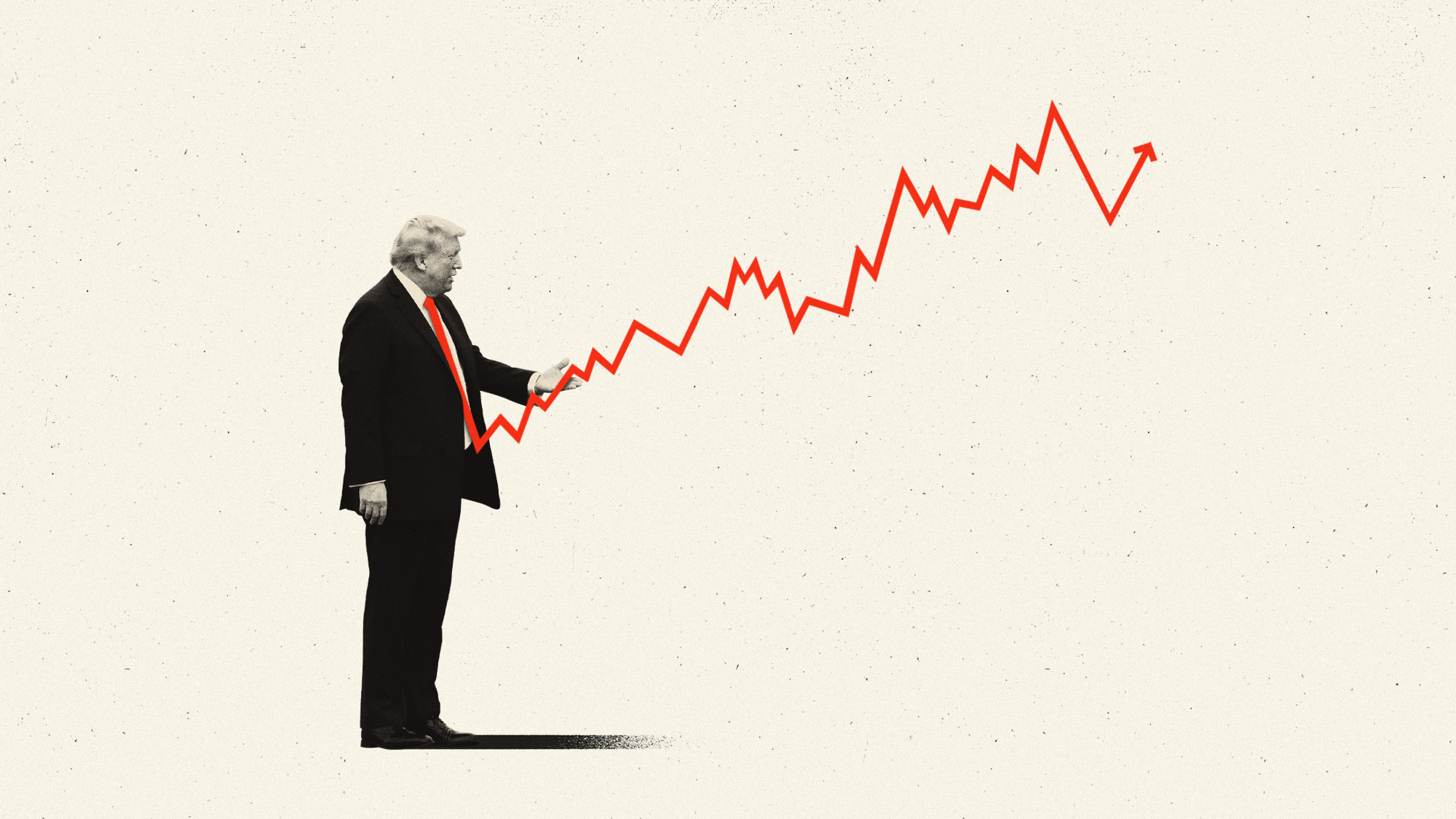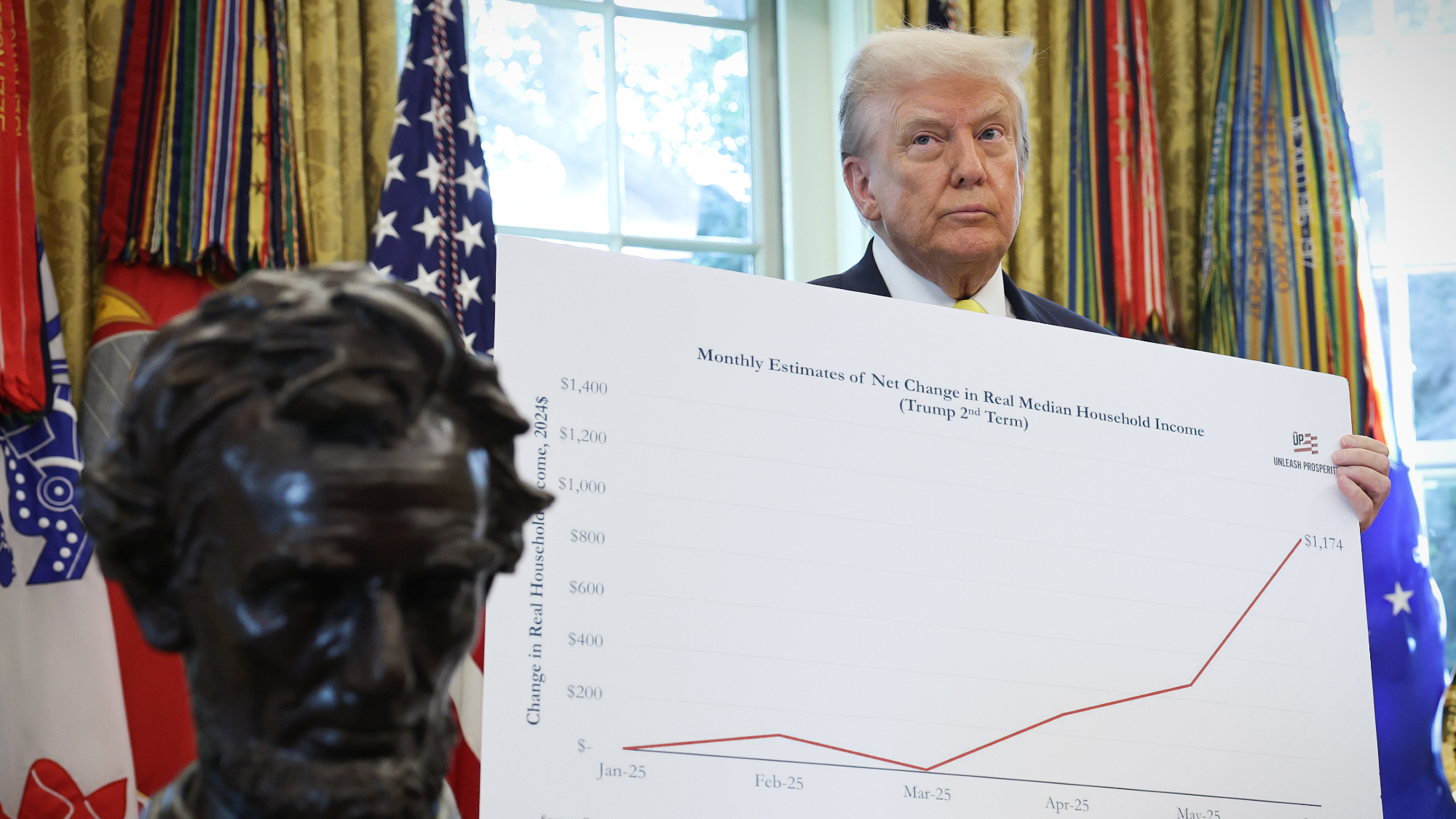The coming backlash against growth and jobs
How America's rich are trying to drag us back to 2008


A free daily email with the biggest news stories of the day – and the best features from TheWeek.com
You are now subscribed
Your newsletter sign-up was successful
Republican Senator Ron Johnson (Wis.) won't try to convince OshKosh Defense, a Wisconsin-based company, to make vehicles for the Post Office in his home state. "It's not like we don't have enough jobs here in Wisconsin," he told reporters over the weekend. "The biggest problem we have in Wisconsin right now is employers not being able to find enough workers."
He's not alone in that thinking. "We don't have a lack of work but a lack of willing workers," claimed Heritage Foundation research fellow Joel Griffith in a recent statement, adding that "[w]hat's to blame are welfare handouts that don't require any effort to get back to work[.]" Others aren't so blatant, but the message is the same. "If I were the Fed chair ... I would have raised rates early in the fall," Bank of America researcher Ethan Harris told CNBC Monday. "When we get this broad-based increase, and it starts making its way to wages, you're behind the curve, and you need to start moving." That is: Workers are making too much, and their pay needs to be cut.
These comments are reflective of a growing movement to strangle the American economy. Everyone claims to love growth and jobs in this country, but the fact is the rich have done very, very well over the last decade of slow growth and high unemployment. They'll try to re-create that situation if they can.
The Week
Escape your echo chamber. Get the facts behind the news, plus analysis from multiple perspectives.

Sign up for The Week's Free Newsletters
From our morning news briefing to a weekly Good News Newsletter, get the best of The Week delivered directly to your inbox.
From our morning news briefing to a weekly Good News Newsletter, get the best of The Week delivered directly to your inbox.
From the standpoint of business owners, a high-growth, high-employment economy has two big downsides. The first is eroded control over labor. In the decade after 2008, employers who needed to hire someone always had a line of desperate people going around the block.
They didn't have to deal with increasing wage demands, and they could be irrationally choosy about credentials. They could fire people for any reason or no reason, whenever they wanted, and be confident another disposable worker could be found in moments. Employers like Amazon would discard a tenth of their staff at some installations every year. Plenty of ordinary American consumers like this arrangement, too: Many people appreciate dirt-cheap goods, rapid free delivery, and deferential service workers.
Second, a tight economy isn't great for the stock market and the rate of corporate profits, particularly relative to the rest of the economy. The economic lost decade from 2008 to 2018 was horrible for workers, wages, and the overall growth of the economy, but it was fantastic for asset owners. With workers and inflation quiescent, borrowing ultra-cheap, and investment low, economic production flowed into record corporate profits, and from there (through stock buybacks and dividends that were reinvested) into the stock market. As a result, the S&P 500 soared from $683 in March 2009 to a peak of $4,797 in early January 2022.
That's an economy structured so extreme inequality was the automatic result. Workers had little wage leverage, with chronic high unemployment and unions largely dead, and so income flowed to the top. And because the mass population didn't have the disposable income that would justify new investment in traditional mass-production businesses, profits got plowed into the same financial assets, causing their value to artificially inflate — plus no end of bizarre scams.
A free daily email with the biggest news stories of the day – and the best features from TheWeek.com
With trillions of dollars sloshing around global markets and few sound investment prospects, it's been a magical decade for people who own stocks — some 89 percent of which are in the pockets of the 10 percent richest Americans, incidentally — and fast-talking hucksters. Start-up businesses from the preposterous (Uber, Doordash, WeWork) to the utterly nonsensical (Theranos, NFTs, cryptocurrency) sucked in billions in investment from the considerable number of oligarchs with more money than sense, creating instant paper billionaires (many of whom are either waiting for their Wile E. Coyote moment or due to be sentenced to prison).
Yet today, the prospects aren't so good for the idle rich. Inflation is cutting away at stock value, and with the tightest labor market in at least 20 years, wages are soaring, especially at the bottom of the income ladder. If sustained, that means a higher labor share of income and hence a lower rate of corporate profits. Sure enough, at the time of writing the S&P 500 was off about 7 percent from its peak a month ago.
Investment is starting to flow to companies that actually do hard, complicated things — like logistics, shipping, and cutting-edge manufacturing — instead of quasi-fraudulent internet ephemera. Witness Facebook's massive push towards a goofy virtual reality "metaverse," which has gone over like a lead balloon and caused a steep fall in its stock price. Unionized companies like UPS are even outcompeting ones like FedEx built on labor exploitation because the former can hang on to their workers.
Finally, higher interest rates are only a matter of time, which would greatly raise the cost of debt-fueled stock buybacks or asset stripping. Now, the anti-jobs crowd does want the Fed to raise rates — but only to tip the economy back to its weak post-2008 state, after which they can be lowered again so the party can restart.
A tiny class of rich parasites have become like some great economic tumor, sucking up the wealth produced by the labor of millions into their own bloated personal hoards. It's socially and economically diseased, but it's great for the people at the very tippy-top of society. Like Milton's Satan, they would rather rule over a stagnant, backward economy than take a somewhat lesser place in a thriving and prosperous country.
Ryan Cooper is a national correspondent at TheWeek.com. His work has appeared in the Washington Monthly, The New Republic, and the Washington Post.
-
 What to know before filing your own taxes for the first time
What to know before filing your own taxes for the first timethe explainer Tackle this financial milestone with confidence
-
 The biggest box office flops of the 21st century
The biggest box office flops of the 21st centuryin depth Unnecessary remakes and turgid, expensive CGI-fests highlight this list of these most notorious box-office losers
-
 The 10 most infamous abductions in modern history
The 10 most infamous abductions in modern historyin depth The taking of Savannah Guthrie’s mother, Nancy, is the latest in a long string of high-profile kidnappings
-
 The billionaires’ wealth tax: a catastrophe for California?
The billionaires’ wealth tax: a catastrophe for California?Talking Point Peter Thiel and Larry Page preparing to change state residency
-
 Bari Weiss’ ‘60 Minutes’ scandal is about more than one report
Bari Weiss’ ‘60 Minutes’ scandal is about more than one reportIN THE SPOTLIGHT By blocking an approved segment on a controversial prison holding US deportees in El Salvador, the editor-in-chief of CBS News has become the main story
-
 ‘They’re nervous about playing the game’
‘They’re nervous about playing the game’Instant Opinion Opinion, comment and editorials of the day
-
 Tariffs: Will Trump’s reversal lower prices?
Tariffs: Will Trump’s reversal lower prices?Feature Retailers may not pass on the savings from tariff reductions to consumers
-
 Has Zohran Mamdani shown the Democrats how to win again?
Has Zohran Mamdani shown the Democrats how to win again?Today’s Big Question New York City mayoral election touted as victory for left-wing populists but moderate centrist wins elsewhere present more complex path for Democratic Party
-
 Millions turn out for anti-Trump ‘No Kings’ rallies
Millions turn out for anti-Trump ‘No Kings’ ralliesSpeed Read An estimated 7 million people participated, 2 million more than at the first ‘No Kings’ protest in June
-
 Inflation derailed Biden. Is Trump next?
Inflation derailed Biden. Is Trump next?Today's Big Question 'Financial anxiety' rises among voters
-
 Trump picks conservative BLS critic to lead BLS
Trump picks conservative BLS critic to lead BLSspeed read He has nominated the Heritage Foundation's E.J. Antoni to lead the Bureau of Labor Statistics
